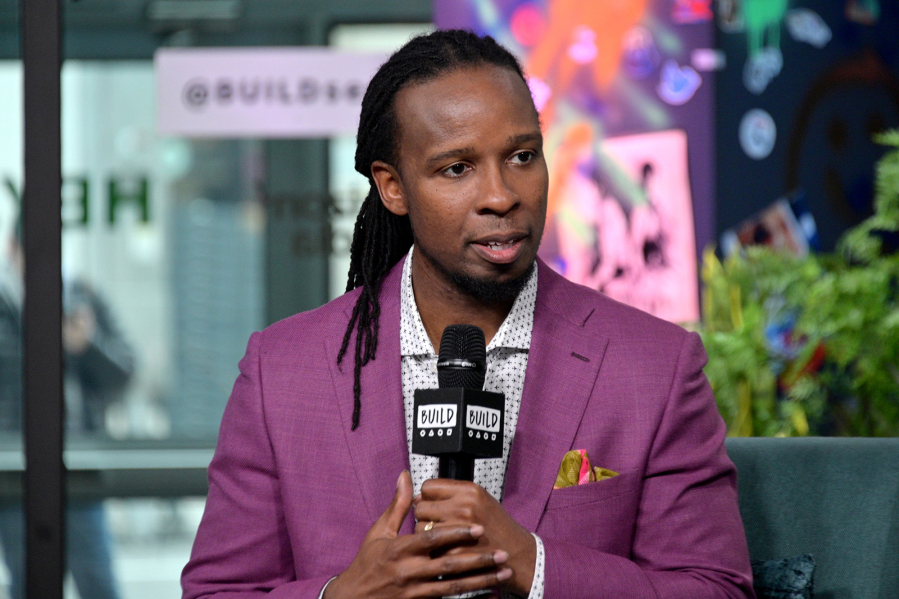Ibram X. Kendi, the award-winning author of the 2019 bestseller “How to Be an Antiracist,” is officially a colon cancer survivor.
The National Book Award winner — a MacArthur fellow and director of the Center for Antiracist Research at Boston University — had been diagnosed with Stage 4 colorectal cancer in 2018 and on Monday marked the five-year anniversary of an “all-day” surgery he underwent before becoming cancer-free.
“Only 14 percent of people receiving my diagnosis are likely to be alive five years later. Today, I can officially say I am a cancer survivor,” the author, who was diagnosed at age 35, wrote Monday on Instagram. “Feeling both grateful to be alive and terrible that other cancer patients aren’t here with us.”
He added: “After six months of chemotherapy, I had an all-day surgery today five years ago. I’ve had to get scanned pretty regularly ever since, hoping the cancer did not return. But despite all the hate and envy directed my way over the years, the arms of love did not let it all get to me. The cancer did not return.”
The 41-year-old accompanied his caption with a photo of himself in recovery, reclining on a sofa with his abdominal bandages on display. He had a huge smile on his face and his then 2-year-old daughter Imani on his lap. Imani showcased her own belly dressings too.
“I remember when I finally got home a week or so after my surgery. Our two-year-old daughter kept crying as she looked at my bandages. I asked her if she wanted bandages too. She immediately stopped crying and put bandages on her stomach in solidarity. And smiled. #survivor(heart),” the author concluded.
Colorectal cancer is a disease in which cells in the colon (the large intestine or large bowel) or rectum (the passageway that connects the colon to the anus) grow out of control, according to the U.S. Centers for Disease Control and Prevention. The disease is often called colon cancer for short. It is considered the fourth most common cancer in men and women and the fourth leading cause of cancer-related deaths in the United States.
In 2019, Kendi wrote an essay for the Atlantic sharing what he learned from his metastatic cancer, including raising his daughter and living through the health struggle while writing “How to Be an Antiracist.” He said that he had suffered through weight loss, fatigue, bowel pain and defecating blood clots for months before a 2018 colonoscopy ascertained his “devastating” diagnosis.
“In waiting rooms and while waiting in doctors’ rooms, I exchanged several emails with the editor, finalizing the essay that argued ‘the heartbeat of racism is denial,’” he wrote for the magazine. “I argued that the heartbeat of antiracism is confession. Writing the piece forced me to confess my fear of death. I confessed to my loved ones that I did not want to die before finishing ‘How to Be an Antiracist.’ I wanted it to be my last literary contribution to the world. I wrote it critically and carefully, untroubled about a backlash I might not live to see. And ironically, the book will come out this August, a week after the 37th birthday that I intend to see.”
Kendi spent years studying racism’s history and rose to fame distinguishing the differences between the terms “antiracist” and “not racist.”
A racist idea connotes racial hierarchy — that a particular racial group is superior or inferior, Kendi explained during an L.A. Times Book Club conversation last summer.
Alternatively, antiracist ideas suggest that all racial groups are equal — biologically, culturally and behaviorally. He said that a key difference between being “antiracist” and “not racist” — a common response when someone is accused of saying something racist — lies in people’s actions, specifically whether they maintain the status quo or actively challenge racist policies, “putting in place equitable and just policies, recognizing equality of the racial groups,” he said.
To be antiracist is also to admit and to recognize when we’re being racist, he added.
In 2022, Kendi published “How to Raise an Antiracist,” a follow-up to his 2019 bestseller and a personal and researched guide for parents, teachers and caregivers inspired by his daughter. He also published his fifth book, the children’s board book “Antiracist Baby,” in 2020 on the heels of the killing of George Floyd.



